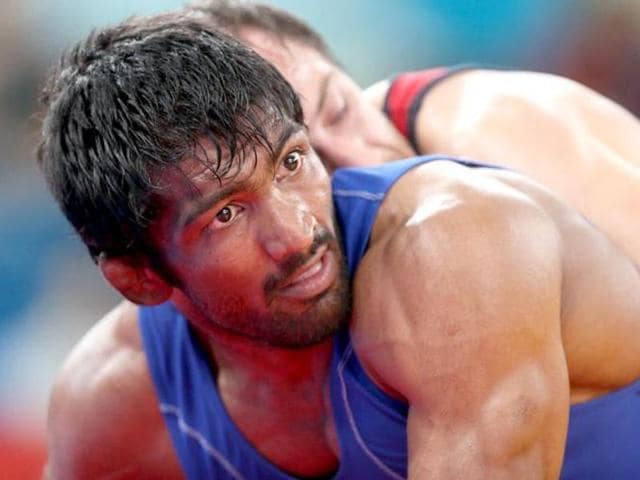Yogeshwar Dutt: Not the first Indian to benefit from ‘retrospective testing’
The World Anti Doping Agency’s (WADA’s) “legacy testing” or “retrospective testing” procedure is set up to ensure the clean athletes get justice, even if it comes a bit late. And Yogeshwar Dutt joined Anju
The World Anti Doping Agency’s (WADA’s) “legacy testing” or “retrospective testing” procedure is set up to ensure the clean athletes get justice, even if it comes a bit late. And Yogeshwar Dutt joined Anju Bobby George as two Indians who have benefitting from the system.

Though official confirmation is pending, Dutt’s bronze medal from the London Olympics is likely to be upgraded to silver after Russia’s Besik Kudukhov, who finished second in the 60 kg freestyle wrestling category in 2012, tested positive during reanalysis.
This is not the first time an Indian athlete has benefitted from retrospective testing, in which, under revised norms, samples are now stored for up to 10 years to allow the use of advanced tests to weed out dope cheats.
In 2014, after a wait of nine years, long-jumper Anju’s silver medal at the 2005 World Athletics final in Monte Carlo was replaced by gold after the winner, Tatyana Kotova of Russia, was disqualified for doping. In 2013, Anju had also moved up one place to fourth in the long jump results of the 2005 Helsinki World Championships where Kotova lost her silver after her sample turned positive in re-tests conducted by International Amateur Athletics Federation (IAAF).
Anju said she was happy for Dutt and was satisfied by the measures taken by the International Olympic Committee to catch cheaters and also its strict action against Russians athletes.
“It should have happened long time back,” she said. “Then again it’s better late than never. I could have won medals at the Olympic Games as well, but Russian athletes, who later failed dope tests, denied me each time.”
Despite giving her best, added Anju, winner of bronze at the 2003 World Athletics Championships in Paris, she was always trailing the Russian jumpers.
“It was very discouraging but I kept on working hard. I was more talented than those athletes. I used to give 200 percent on the field, but still I was either fourth or fifth,” she said.
For six years, starting from 2003, Anju was ranked among the top six women long jumpers in the world.
“There were three Russians who were ahead of me. If those athletes were caught at the time, I would have claimed medals in all the global events including the 2004 Athens Olympics.”
Anju has a point too. With the WADA and the IOC imposing a ban on Russian athletes in Rio following revelations of wide-spread doping among the country’s athletes, we can only imagine how it would have been 12 years back when anti-doping rules were relatively less stringent.
At the Athens Games, Anju finished fifth while Kotova won Bronze behind fellow Russians Tatyana Lebedeva (gold) and Irina Simagina.




